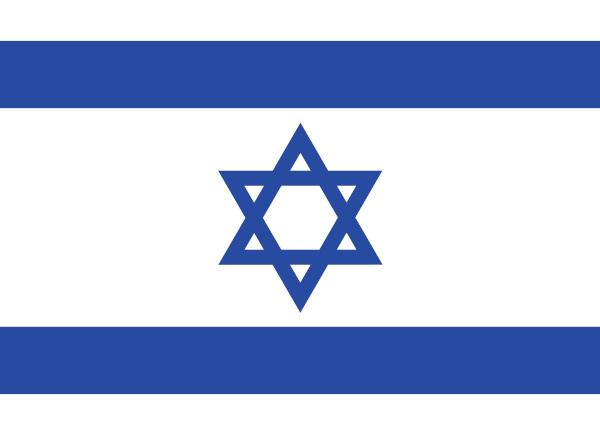Throughout the 20th century, the region known as the Gaza Strip, along the Mediterranean Sea, went through a series of conflicts, especially after the Partition of Palestine in 1947. With the development of the First Arab-Israeli War between the years 1948 and 1949 the Gaza Strip was conquered by Egypt, until it finally suffered annexation by Israel during the known conflict. like Six Day War, in 1967.
After nearly 25 years of Israeli rule over the Gaza Strip, the United States participated in the mediation of a rapprochement between Jews and Palestinians in 1993, with the signing of the Oslo Accords signed by Palestinian leader Yasser Arafat and Israeli Prime Minister Yitzhak Rabin. Israel has pledged to withdraw Jewish settlements from Gaza and recognize the sovereignty of that territory to Palestinian Arabs. Unfortunately, the Oslo Accords were followed by the assassination of Rabin, carried out by a Jewish extremist. The delay in applying the Oslo determinations slowly cooled relations between the parties, and radicalism on both sides began to resurface.
The withdrawal of the Jewish population began, in fact, in 2005, as an Israeli strategy to persuade the Palestinians to reduce clashes against the Israeli army and population, increasing inspection and protection of their borders. Even after the withdrawal of Jewish settlers from Gaza, Israel maintained control of the airspace as well as the entry of people and essential supplies for the Palestinian population, including the largest share of the generation of energy. The return of Gaza came at the same time that the Fatah political group assumed the presidency of the Palestinian government, a fact that could favor diplomatic negotiations with Israel.
A year later, the extremist group Hamas won parliamentary elections in Palestine and took control of the Gaza Strip. Immediately after Hamas' victory, Israel did not recognize such elections, as Hamas members never hid. its pretensions of destroying the State of Israel instead of maintaining a policy of negotiations, a position totally opposed to the Fatah.
As a way to stop the advances of Hamas, Israel established in 2007 the Commercial Blockade of the Gaza Strip, receiving unrestricted support from the government of Egypt, essential to succeed in these claims. According to the Israeli government, the blockade of Gaza was carried out to prevent Hamas' access to funding, weapons and other raw materials. The practice of the embargo punished not only Hamas, but the entire Palestinian population of Gaza, with about 1.5 million people. inhabitants and concentrated in a territorial extension of only 360 km², determining a population density of more than 4,500 inhab./km². As most of its inhabitants live in poverty, international humanitarian aid is essential to prevent the installation of a even more serious social crisis, as the embargo restricts products such as construction materials, electronic equipment, agricultural inputs and fuels. Indirectly, the block ends up interfering with other threads. With the compromise of the electrical network, pumping and water supply remain unstable and unable to meet demands.
Do not stop now... There's more after the advertising ;)
In 2010 a group of 6 ships from Turkey headed towards Gaza to take humanitarian aid in the form of doctors, medicine, food, among other basic goods. Israel's navy intercepted the group, targeting one of these ships, which resulted in the death of 10 people. who were part of a team of 750 activists, a fact deeply repudiated by the community International. External pressures after this incident and the condemnation of the UN General Secretariat for maintaining the blockade resulted in a small increase in the entry of Israeli basic products to supply the Palestinian population residing in Gaza, although timidly.
A few hundred tunnels were dug between the Gaza Strip and Egypt, mainly near the Palestinian city of Rafah, in order to smuggle the products that have their commercialization limited by the commercial blockade, being used to transport from cars and fuel to cigarettes and materials of construction. Even illegal, the tunnel trade produces an income of approximately US$700 million a year, heating up the economy of Gaza, generating jobs and allowing the socioeconomic reproduction of the population Palestine.
With the collapse of the Egyptian dictatorship and the election of President Mohamed Mursi, of the Muslim Brotherhood Islamic party, there was a scenario of relaxation of the blockade on the side Egyptian, but the country's military, still very influential in political practices, have always been against ending the restrictions, including flooding some of these tunnels. After taking charge of the country, once again after overthrowing the Mursi government in July 2013, the situation of Gazans dependent on the goods transported through the tunnels has deteriorated significantly.
*Image credits: Chameleons Eye and Shutterstock.com
Julio César Lázaro da Silva
Brazil School Collaborator
Graduated in Geography from Universidade Estadual Paulista - UNESP
Master in Human Geography from Universidade Estadual Paulista - UNESP



